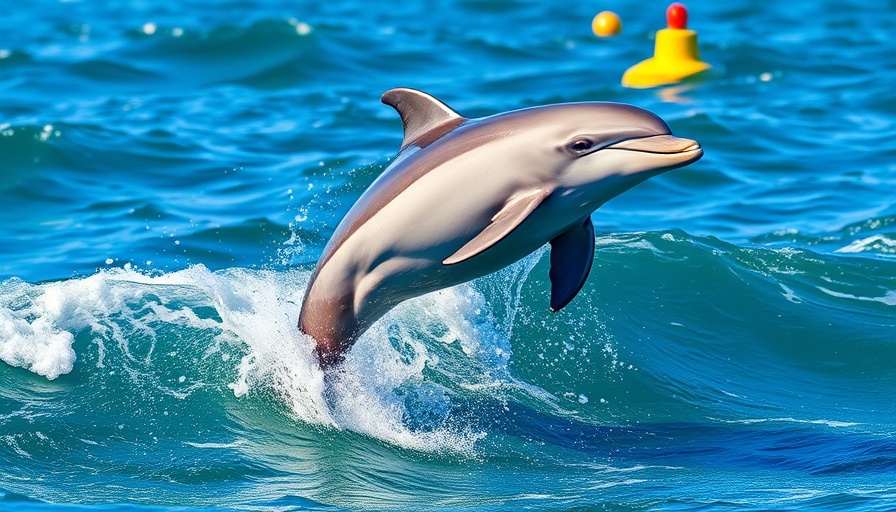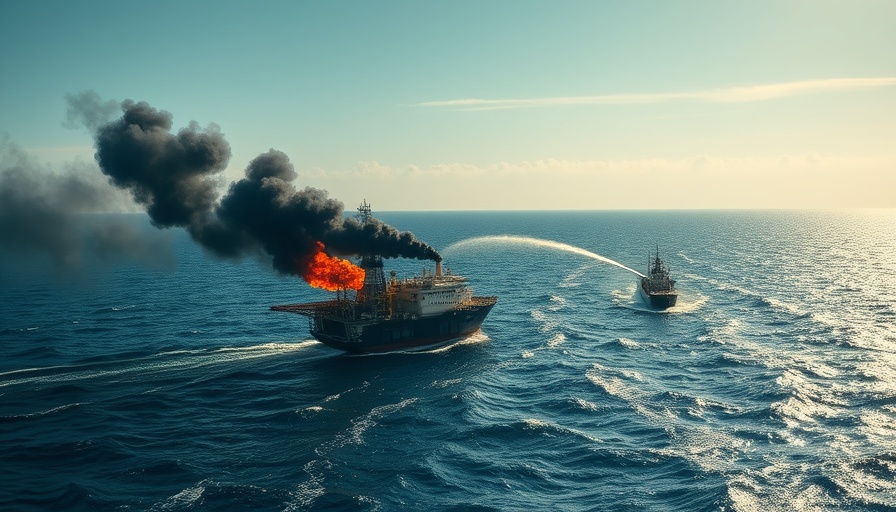
A Shocking Crime Against Nature
In a recent case that has stirred public outcry, Zachary Brandon Barfield, a charter boat captain in Panama City, Florida, was sentenced to a month in jail along with a $51,000 fine for the heinous act of killing bottlenose dolphins. These marine mammals are not just integral to our oceans but are also protected under the Marine Mammal Protection Act. The court’s ruling comes after an extensive two-year investigation by NOAA Fisheries and the Florida Fish and Wildlife Conservation Commission.
Poisoning and Shooting Dolphins: A Disturbing Method
Barfield’s confession revealed a shocking method of killing these dolphins. He notoriously injected a toxic insecticide, methomyl, into baitfish to keep the dolphins away from red snapper—targeted by his clients. Following this, he brazenly shot a dolphin with a shotgun, showcasing a gross disregard for wildlife and the environment. This not only reflects Barfield's ruthless approach to fishing but also raises critical questions about the ethics of commercial fishing practices.
The Broader Impact on Marine Life and Ecosystem
Barfield's actions symbolize a troubling trend that jeopardizes marine ecosystems in the Gulf of Mexico, now referred to as the Gulf of America, a term popularized during Donald Trump’s presidency. The Gulf's rich marine biodiversity faces numerous threats ranging from overfishing to pollution, and incidents like this highlight an urgent need for stricter enforcement of environmental laws. Bottlenose dolphins, known for their intelligence and social structures, play a critical role in maintaining the health of ocean ecosystems.
Public Sentiment and Responsibility
As news of Barfield's actions spread, community reactions have been mixed, ranging from anger and disbelief to calls for tougher penalties for animal cruelty. This incident shines a light on the importance of protecting marine wildlife as part of our shared responsibility toward preserving natural beauty and biodiversity. Public pressure is mounting for wildlife enforcement agencies to take a more vigorous stance against individuals who jeopardize the balance of nature for profit.
Future Insights for Wildlife Protection
Moving forward, it's crucial to advocate for policies that not only protect vulnerable species but penalize offenders effectively. Enhanced awareness campaigns and educational programs targeting fishermen and the general public could prove vital in fostering a culture of respect and responsibility towards marine life. The hope is that severe actions like Barfield’s sentencing will serve as a deterrent, sending a clear message about the consequences of harming wildlife.
This unfortunate incident reminds us of the fragility of marine ecosystems and the responsibilities we all share in safeguarding our environment. Activism and conservation efforts focused on the Gulf of Mexico could prevent future tragedies similar to Barfield's actions.
 Add Row
Add Row  Add
Add 




 Add Row
Add Row  Add
Add 

Write A Comment